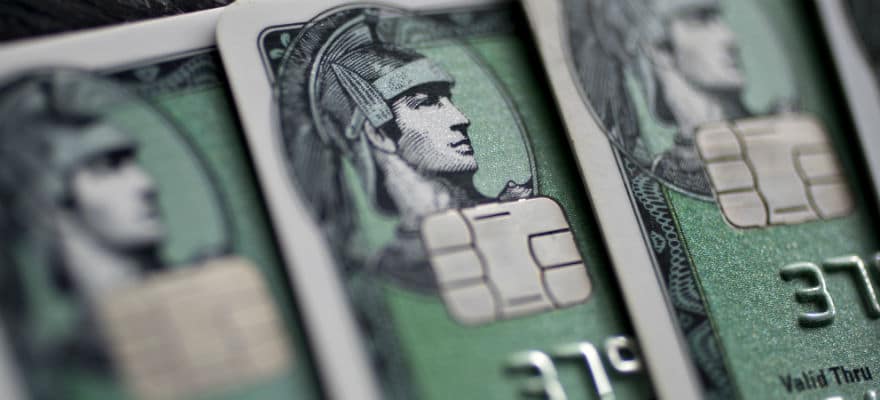On Thursday, American Express and Santander officially announced a partnership with Blockchain network Ripple. The companies state that they aim to reduce costs and increase speed for across-the-border transactions between the US and the UK. The collaboration will route Payments made through American Express’s FX Internation Payments platforms by business customers through RippleNet.
Marc Gordon, executive vice president and chief information officer at American Express, said: “This collaboration with Ripple and Santander represents the next step forward on our blockchain journey, evolving the way we move money around the world.”
While other major electronic payment platforms, such as MasterCard, have taken some steps toward integrating blockchain technology into their systems, this is the first time a major payment card company has actually taken the leap into blockchain adoption. According to a CNBC report, American Express and Santander both “suggested the blockchain project could eventually be extended worldwide.”
Ripple CEO Brad Garlinghouse added: “We're taking a huge step forward with American Express and Santander in solving the problems corporate customers experience with global payments. Transfers that used to take days will be completed in real-time, allowing money to move as fast as business today.”
In the wake of the announcement, the Ripple crypto token (XRP) experienced a massive bullish run from roughly US$0.21 to US$0.27. However, the rally has since settled around US$0.22.
Blockchain in Brief: Security and Efficiency for Payment Platforms
Blockchain technology is a form of Distributed Ledger Technology (DLT) that is commonly used as a platform for payment networks. The most famous blockchain-based payment network is Bitcoin, which also happens to be the first blockchain network that was ever created.
Blockchain networks are not stored in or operated from any central location - rather, they are upheld by hundreds or even thousands of computers called 'nodes', which perform the duties necessary to securely store transactional data. In exchange for their work, they receive rewards in the form of crypto tokens.
The transactional data is stored in little groups, called 'blocks'. When a block is full, it gets added to the block that came before it in a linear fashion, like in a chain. Thus, 'blockchain'.
Increased transactional speed isn’t the only benefit that blockchain can bring. Because blockchain networks are not stored in any central location, they are virtually impervious to hacking (a hacker would have to compromise more than half of the computers on the network to be effective) or the effects of natural disasters. Additionally, companies who use blockchain technology or other forms of DLT greatly reduce the costs associated with the maintenance of a centralized server.
Because making any retroactive changes to the data stored on a blockchain would mean gaining consensus from the entire network, it is also nigh on impossible for duplicate or fraudulent transactions to take place.
Blockchain Adoption is On the Rise
Some of the world’s major banks and financial systems have also had their interest piqued by the potential of blockchain integration, despite the fact that many big names in the financial world have decried Bitcoin as “a fraud” (ahem, Jamie Dimon). UBS, Barclays, SWIFT, HSBC, and Barclays have all been exploring blockchain.
Blockchain is, at the very least, becoming harder to ignore, as cryptocurrencies are still proving people that decry them as a fad or a bubble wrong. The truth is that this technology does have something to offer the world. Bitcoin’s enigmatic creator (or group of creators), Satoshi Nakamoto, has some choice words for skeptics: “If you don't believe me or don't get it, I don't have time to try to convince you, sorry.”


















